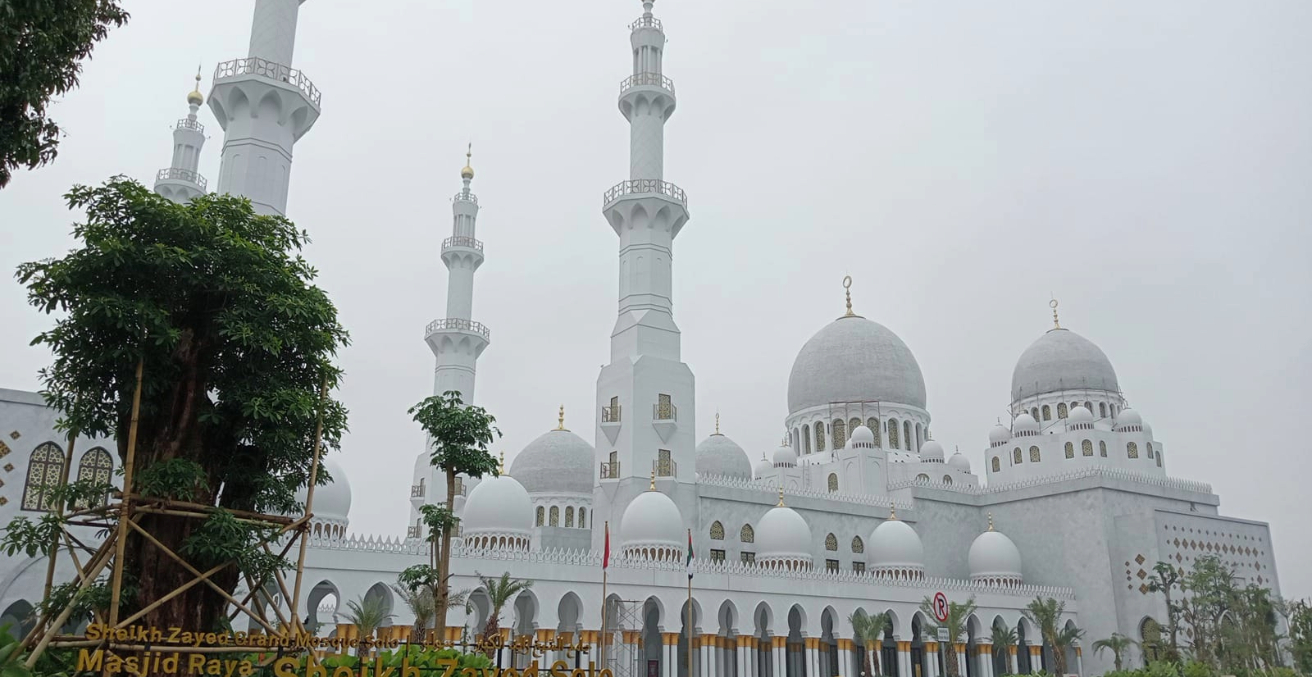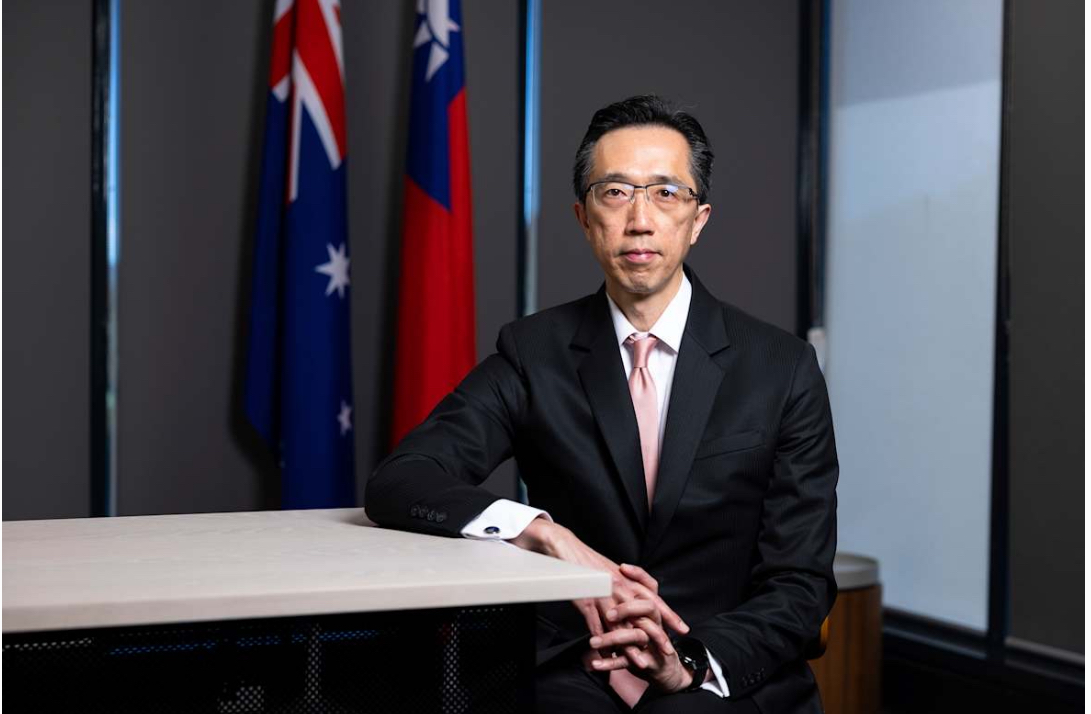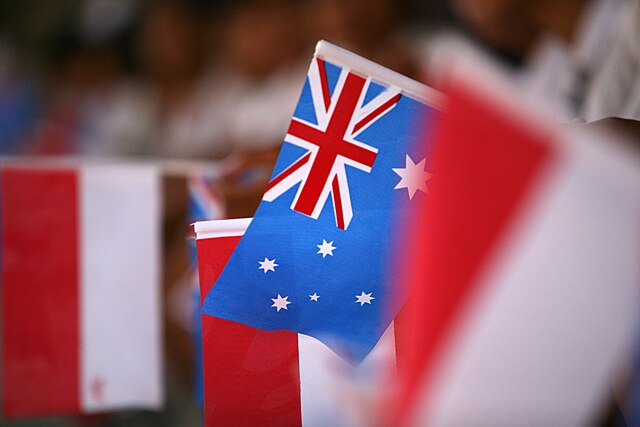Indonesia is entering a new phase of religious environmentalism, with ecotheology officially recognised as a national policy priority. As faith-based institutions embrace green values, the challenge lies in transforming policy rhetoric into meaningful, grassroots action amid complex environmental contradictions.
Between April and July 2025, Indonesia’s public sphere witnessed a surge of interest in religious environmentalism. Across the country, workshops, trainings, and conferences explored ideas such as green Islam, eco-mosques, eco-pesantren (Islamic boarding school), and ecotheology. While not entirely new—Indonesia’s Ministry of Environment introduced the eco-pesantren initiative in 2008, and journalist Peter Gelling referred to the country as “the home of ‘Green Islam’” in 2009—the current wave of interest reflects something more institutionalised: the formal inclusion of ekoteologi (ecotheology) as a strategic priority by the Ministry of Religious Affairs (MoRA).
Ecotheology, broadly understood as the integration of religious teachings with care for the Earth, is not new to academic discourse. Yet its recent adoption by MoRA signals a shift: from academic theory to policy agenda. MoRA’s Ministerial Decree No. 244 (March 2025) lists ecotheology as the second of eight strategic priorities for 2025–2029, just after kerukunan dan cinta kemanusiaan (harmony and love for humanity).
At the centre of this policy shift is Nasaruddin Umar, the newly appointed Minister of Religious Affairs in President Prabowo’s cabinet. A prominent scholar of Qur’anic exegesis, Sufism, and gender, Nasaruddin has emerged as a key proponent of ecotheological thinking. His dual role as Minister and Imam Besar (Grand Imam) of the national Istiqlal Mosque strategically positions him to advance an environmental agenda rooted in Islamic values.
Nasaruddin’s international engagement also warrants attention. In September 2024, he co-signed the “Istiqlal Declaration” with Pope Francis—a powerful symbol of interfaith cooperation in the face of climate change and dehumanisation. As Grand Imam of Istiqlal Mosque—recognised in 2022 as the world’s first mosque to receive EDGE (Excellence in Design for Greater Efficiencies) certification—he is actively promoting both religious and environmental innovation.
Indonesia’s embrace of ecotheology is perhaps unsurprising, given the deeply embedded role of religion in public life. During the COVID-19 pandemic, religious leaders played a crucial role in disseminating public health messages. Similarly, in the wake of natural disasters, religious frameworks have helped communities interpret suffering and reconstruct meaning. In this context, sidelining religion from environmental policy would be short-sighted.
This is not unique to Indonesia. Across the Pacific Islands, where churches and faith-based organisations hold significant moral authority, religious worldviews likewise shape how communities respond to environmental degradation and climate change. These parallels underscore the importance of engaging with religious actors in climate policy across the region.
For Australia—Indonesia’s neighbour and climate partner—this offers a timely reminder: effective environmental engagement must reckon with religion as a vital and enduring force in society, both in Southeast Asia and the Pacific.
But what does ecotheology mean in the Indonesian context? Despite MoRA’s efforts, the term remains unfamiliar to many. Most public communications still lean on more established Islamic theological ideas, particularly khalifah (humans as God’s stewards on Earth). A Friday sermon issued by MoRA to mark Earth Day in April 2025 encouraged preachers to frame environmental care as a divine responsibility. Yet such framings often remain anthropocentric—centred on human duties—rather than recognising the inherent value of non-human life.
For ecotheology to become more than a policy buzzword, it must translate into sustained collective action. It cannot remain confined to elite discourse or internal ministry frameworks. Instead, it needs to engage directly with communities, religious leaders, and everyday believers. This raises several urgent questions: How can the Ministry of Religious Affairs (MoRA) move beyond theological proclamations to foster grassroots mobilisation? What roles can Indonesia’s extensive religious infrastructure, civil society organisations, and faith-based NGOs play in embedding ecotheological principles in practice? And crucially, how can MoRA reconcile the values of ecotheology with extractive state policies—such as Government Regulation No. 25/2024, which controversially permits religious organisations to manage mining licenses?
These contradictions expose a fundamental tension at the heart of MoRA’s ecotheological push. Ecotheology, in its earliest articulations, emerged as a response to the moral crisis of ecological degradation. It was—and still is—rooted in the pursuit of environmental justice and the critique of anthropocentric, exploitative relationships with the Earth. In this spirit, ecotheology challenges “greenwashing” or superficial environmentalism that legitimises continued harm under the guise of piety or development. If MoRA is to meaningfully promote ecotheology, it must critically examine the entanglements between religion, profit, and ecological harm in Indonesia’s broader environmental governance.
Still, there are encouraging signs of progress. MoRA has begun introducing initiatives aimed at integrating environmental ethics into religious life. Among these is the Anugerah Masjid Percontohan dan Ramah (AMPeRa)—a national award scheme that recognises exemplary and environmentally friendly mosques. Another initiative, the “One Million Matoa Trees” campaign, urges each mosque, religious school, and MoRA office to plant a minimum of ten trees. These programs represent early but important efforts to embed ecological awareness within the day-to-day practices of religious institutions.
Targeting mosques is a strategic choice. Indonesia is home to more mosques than any other country—reportedly over 811,000. With this extensive physical and social reach, mosques represent a powerful potential force in shifting cultural norms and mobilising public support around environmental issues. MoRA’s attempt to reimagine mosques not just as places of worship, but also as centres of ecological consciousness, aligns well with the growing global recognition that faith-based spaces can serve as catalysts for climate action.
Despite these promising beginnings, MoRA’s ecotheology program remains in its infancy. Its long-term impact will depend on whether it can evolve from a state-led, bureaucratic initiative into a broader social and spiritual movement—one that is capable of confronting entrenched ecological injustices and of inspiring behavioural change across religious communities. For such a transformation to occur, ecotheology must also be open to self-reflection. It must address difficult questions about how religious practices, consumption patterns, and institutional partnerships contribute to environmental harm.
Associate Professa Eva Nisa is a cultural anthropologist and expert in Islamic studies. Her research and publications focus on the intersections between religious, cultural, political, economic, legal, social, and philosophical aspects of peoples’ lives. She is interested in global currents of Islam reshaping the lives of Muslims in Southeast Asia, especially Indonesia and Malaysia. Prior to her post in Anthropology, College of Asia and the Pacific, the Australian National University, she taught in Religious Studies at the Victoria University of Wellington. Currently, she serves on the editorial board of The Asia Pacific Journal of Anthropology and chair of the Islam in Southeast Asia series, ANU Press.
This article is published under a Creative Commons License and may be republished with attribution.





